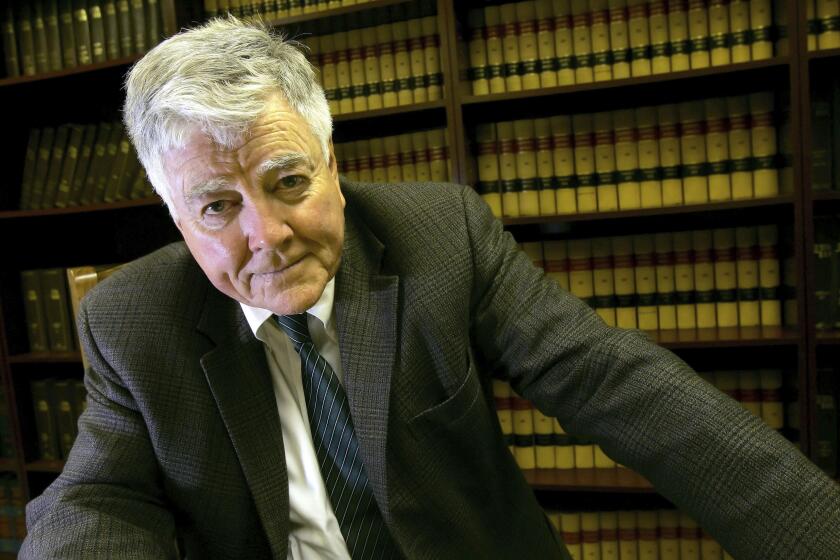India attacks raise questions for Israel
It sounds like a counter-terrorism official’s worst-case scenario: how to protect a global network of lightly guarded (at best) sites, all filled with unarmed civilians and publicly identified as prime targets.
That’s the issue being debated in Israel in the wake of the last week’s terrorist rampage in Mumbai, India. Among the targets was the Nariman House, a hostel and religious center run by Chabad Lubavitch, a New York-based ultra-Orthodox Jewish sect that operates hundreds of such facilities around the world.
“It’s clear that we don’t want our Chabad Houses to turn into barricaded forts,” said Rabbi Menachem Brod, official Chabad spokesman in Israel. “The whole idea of Chabad is that we are open and accessible to Jews traveling abroad.”
The concern has left Israeli officials fending off charges that they should do more to protect the buildings, which serve as outposts for ultra-Orthodox Jewish culture.
“Of course we care, of course we worry, but there’s not much we can actually do,” said Yigal Palmor, a spokesman for the Israeli Foreign Ministry. “Not only is it not governmental, it’s not even Israeli.”
Official Israeli government buildings around the world, including embassies, consulates and cultural centers, have been on heightened alert for most of this year following the February assassination in Syria of Imad Mughniyah, a military commander with Hezbollah. Israeli officials denied involvement in the killing, but have braced for a reprisal by Islamic militants -- amid steady speculation that the attackers would choose an overseas target tied to Israel.
But it’s unlikely that the alert led to serious security modifications at any of the hundreds of Chabad Houses around the world.
According to multiple accounts, it took only two gunmen to seize control of the five-story building. Among the eight bodies found inside after Indian commandos retook the building were Rabbi Gavriel Noach Holtzberg and his wife, Rivkah, the couple who founded the Mumbai Chabad center. Some of the victims were Israeli citizens.
“You can’t expect a rabbi and his young wife to defend against terrorists,” said Eli Karmon, a senior researcher at the Institute for Counter-Terrorism, based in Herzliya, Israel.
But Karmon pointed out that a security guard or two outside the Nariman House may not have made a difference in the face of what was clearly a well-planned attack. He noted that the luxurious Taj Mahal Palace & Tower hotel, which had its own private security, fell just as easily to the gunmen.
Perhaps more disturbing than the attack itself to many Israelis is the prospect that a new terrorist template has been laid out -- with Chabad Houses and other soft Jewish targets in the cross hairs.
It is a possibility that has “staggering ramifications,” said Israeli journalist and analyst Ofer Shelah.
“What is clear is that Israeli sites, or at least sites that are connected to Israel, have become targets -- be they primary or secondary -- for the loose network of global jihad,” Shelah wrote in the Israeli newspaper Maariv.
A report in the Times of India on Sunday said the sole surviving gunman had told Indian police the attackers had specifically targeted the Nariman House with the goal of killing Israelis. The report could not be independently confirmed.
Israeli Prime Minister Ehud Olmert, in his weekly address to the Cabinet, said his government “is doing, and will continue to do, everywhere, what needs to be done to protect Jewish institutions insofar as the matter depends on us and is possible.”
But Ephraim Halevy, former head of Israel’s Mossad intelligence agency, said the Jewish state is heavily restricted in just what kind of protection it could offer nongovernmental institutions like Chabad when they are in other countries. Realistically, the best Israel can do is coordinate with authorities around the world and make sure the Chabad organization is kept informed of any potential threats or warnings, Halevy said in an interview with Israeli radio.
“Israel does not enjoy sweeping global authority for securing its people outside Israel’s sovereign control, and this must be well understood,” Halevy said. “I would say that any Jew in the world who wants absolute security and safety as a Jew is invited to come live in Israel.”
--
Batsheva Sobelman in The Times’ Jerusalem Bureau contributed to this report.
More to Read
Start your day right
Sign up for Essential California for news, features and recommendations from the L.A. Times and beyond in your inbox six days a week.
You may occasionally receive promotional content from the Los Angeles Times.






